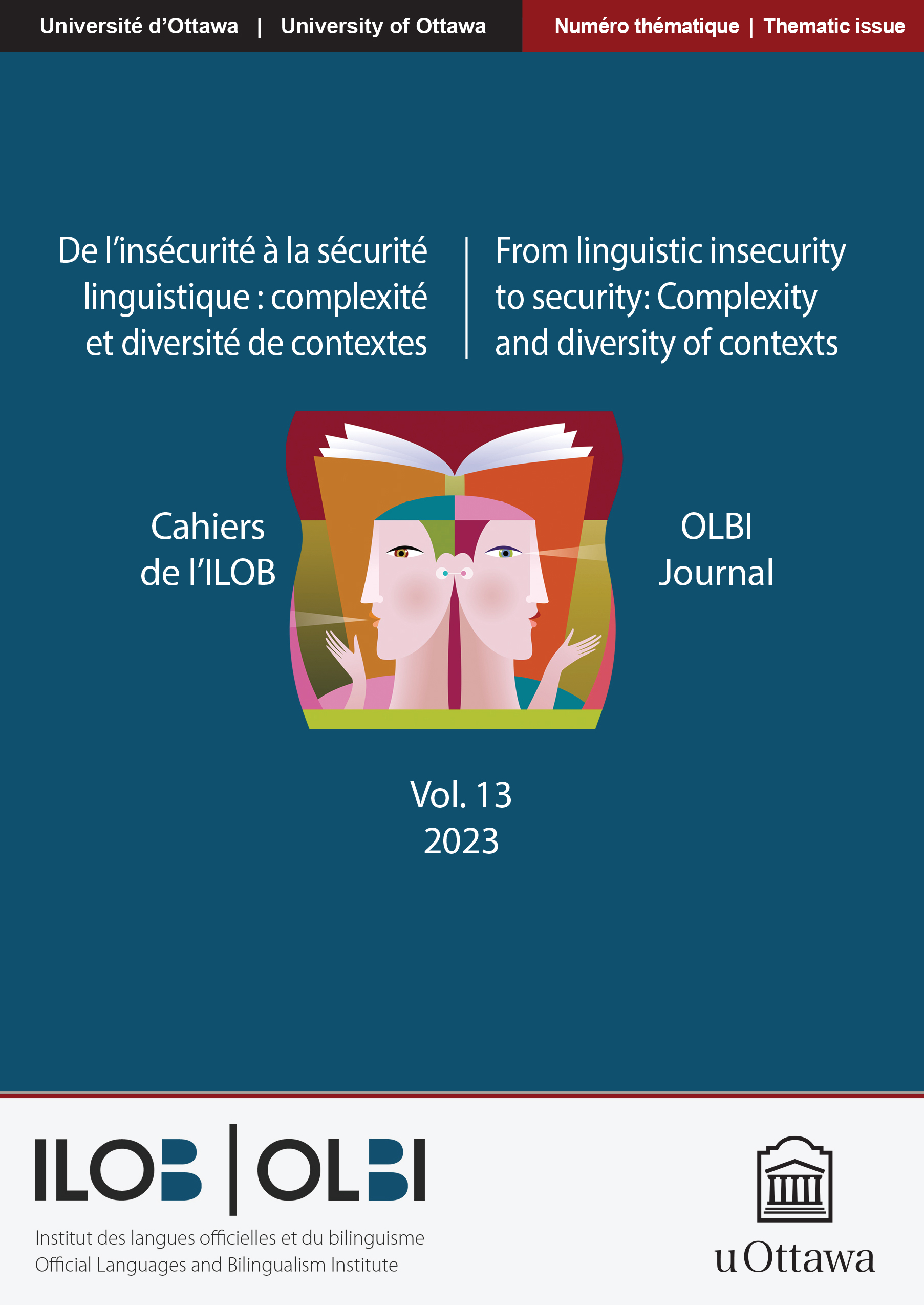Processus d’évaluation des besoins à l’école québécoise: idéologies linguistiques d’orthophonistes scolaires et sentiment d’in/sécurité linguistique d’élèves plurilingues
DOI:
https://doi.org/10.18192/olbij.v13i1.6607Keywords:
Quebec, plurilingual students, needs assessment, language ideologies, speech-language pathologists, sense of linguistic in/securityAbstract
When implemented with students with an immigrant background or racialized, the needs assessment process can lead to over- or underrepresentation of these students in special education. Knowing that the representations of school actors on students have a major impact on the implementation of equitable practices, this article aims to identify the linguistic ideologies of school speech-language pathologists from the analysis of 21 assessment reports of plurilingual students. The results show that imposed and assimilationist monolingualism, segregationist multilingualism and plurilingualism are unevenly present in the corpus. The discussion addresses the presence of fluctuating linguistic ideologies between the participants and within one specific participant, the low recognition of the linguistic repertoire of the students and the crystallization of the latter through the considered “mother tongue” as well as the possible links between the results and student’s feeling of linguistic in/security.
Downloads
Published
Issue
Section
License
Copyright (c) 2023 Corina Borri-Anadon, Marilyne Boisvert, Eve Lemaire

This work is licensed under a Creative Commons Attribution 4.0 International License.
Authors who publish with OLBI Journal agree to the following terms:
- Authors retain copyright and grant the OLBI Journal (OLBIJ) right of first publication with the work simultaneously licensed under a Creative Commons Attribution License that allows others to share the work with an acknowledgement of the work's authorship and initial publication in the OLBIJ.
- Authors are able to enter into separate, additional contractual arrangements for the non-exclusive distribution of the OLBIJ's published version of the work (e.g., post it to an institutional repository or publish it in a book), with an acknowledgement of its initial publication in the OLBIJ.
- Authors will not simultaneously submit the same piece of work for possible publication to more than one academic journal at a time.


